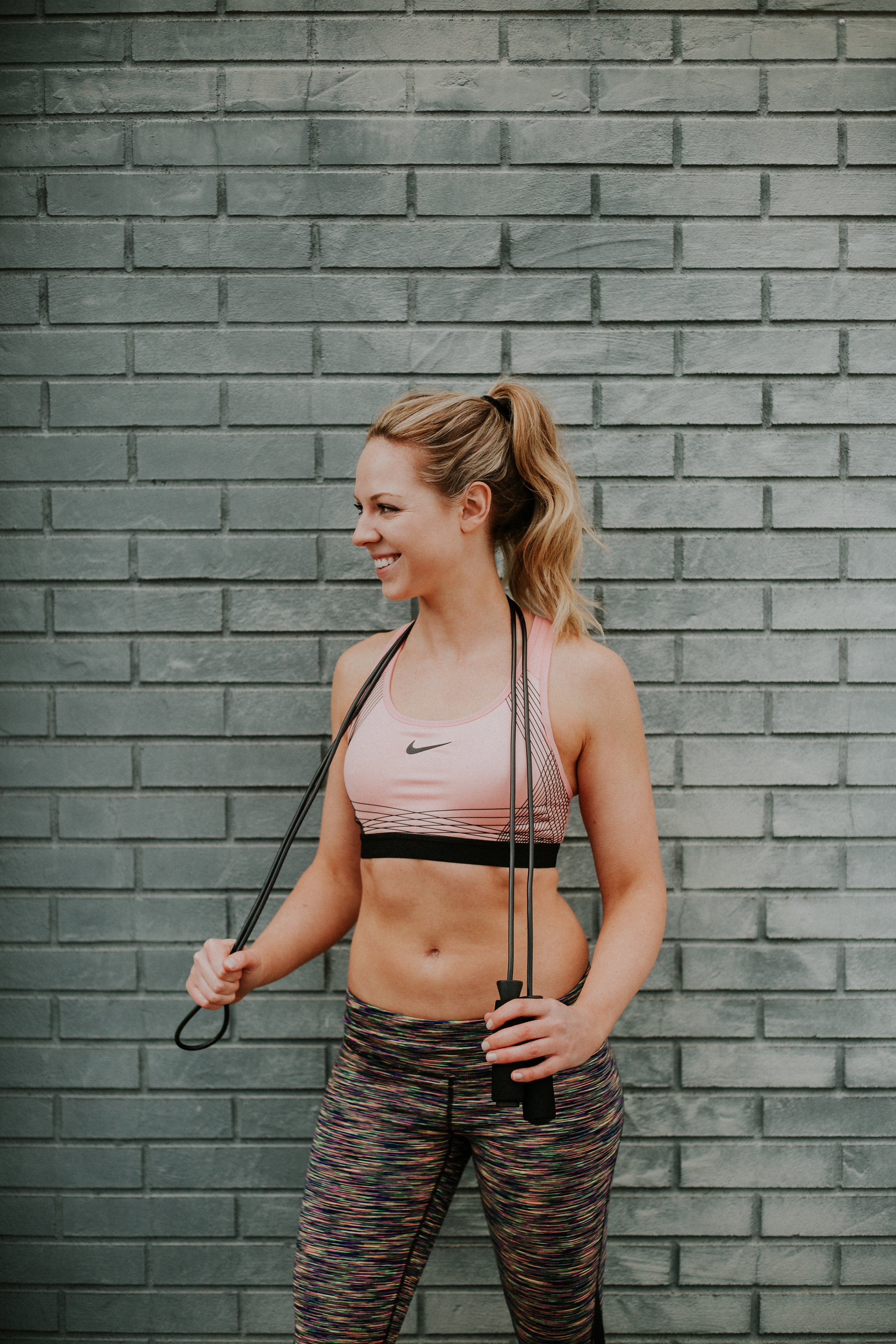While nutrition will never be perfect, it helps to have go-to snacks or meals around your workouts. For pre-workout nutrition, you want quick energy to sustain you for the duration of your workout. Post-workout nutrition is all about muscle repair and recovery. If you take away just one thing, remember to think big picture and ask yourself: "Am I leading an active lifestyle? Am I consistent with my workouts? Am I eating whole unprocessed nutrient-dense foods?" More important than food timing is quantity of food throughout the day. If your goal is fat loss, you need to eat less than the energy you expend. If your goal is performance or muscle building, you need to eat more so your body has the energy to support this.
If you want to see what a full week of workouts and meals looks like, sign-up for my FREE 5 day program which includes workout routines, a structured meal plan and simple recipes.
What to eat before your workout
Our body’s most efficient fuel source for immediate energy are carbohydrates. When we eat carbohydrates they get converted to glucose and stored as glycogen in our muscle cells and liver. Our bodies can actually hold up to 2,000 calories of glucose as glycogen. If you eat balanced meals consistently throughout the day, with a combination of protein, carbs and a little fat you should have enough muscle glycogen stores to power you through a 45-60 minute workout at any given time.
“The best pre-workout fuel is eating a balanced meal one to two hours before you exercise.”
If your main goal is to lose body fat and you train first thing in the morning, you don’t need carbs before a workout and will probably benefit most from training on an empty stomach. If you find you have low energy during fasted workouts, eat a light meal of protein and some healthy fat, or a snack from the list below about an hour before your workout. Always prioritize a post-workout meal that includes carbs and protein within an hour of exercise.
If your goal is long distance performance or muscle building, you’ll need to be more strategic about your workout nutrition. The body depletes its glycogen stores after several hours of activity. Endurance athletes performing long workouts (>90 minutes) may benefit from intra-workout nutrition like a sports drink or gels to hydrate, replenish electrolytes and protect muscle tissue.
The best pre-workout fuel is eating a balanced meal one to two hours before you exercise. Protein around your workouts will help build and maintain muscle. This is important for any goal, whether you want to lose fat, add muscle or for general health. Protein will help prevent muscle damage and aid recovery, allowing for great next-day performance. Avoid having too much dietary fat at your pre-workout meal. Fat slows digestion, which can make you feel sluggish and foggy during a workout and won’t do much to improve performance.
It’s not a perfect world, and having a meal one to two hours before exercise is not always possible. For example, my clients who have breakfast around 8am and workout at 11am do best when they have a small snack like one of the ones listed below. Digestibility is important and this will vary significantly person to person so it takes a little trial and error to find what works best for you. Here are some of my favorite healthy pre-workout snacks to have about 30-60 minutes before exercise for quick energy.
Pre-workout snacks
Ezekiel toast or rice cakes with almond butter and cinnamon or hard boiled eggs
Protein shake with banana and some healthy fat like almond butter or chia seeds
Hard boiled eggs and a banana
A small portion of lean protein like chicken with sweet potato or rice
Apple or banana and handful of nuts or peanut butter
Greek yogurt with blueberries and almonds
Protein bar
Oatmeal with protein powder mixed in
What to eat after a workout
This meal is crucial in supporting a healthy metabolism, muscle recovery and next-day performance. Eat a balanced meal with protein and carbohydrates 1 to 2 hours after an intense workout lasting 45 minutes or longer. When you exercise, glycogen stores get depleted, making this the best time to eat carbohydrates. Your body will shuttle the carbs to your muscles to replenish glycogen instead of storing them as fat. This is a good time to take advantage of your heightened metabolism from your hard workout. Eating after a workout helps to lower cortisol which is elevated during exercise. Managing cortisol helps to improve body composition.
Post-workout meals
Salmon with steamed vegetables and brown rice
Roast turkey with roasted vegetables and sweet potato
Protein shake with banana and almond butter
Oatmeal with protein powder mixed in and almonds
Vegetable egg omelet with avocado and toast or blueberries
Hydration
Your body needs at least half its bodyweight in ounces of plain water throughout the day. When you exercise and lose additional water through sweat, be sure to replenish with about 16 ounces of water for every 30 minutes of sweat. For example, a 200-pound individual needs at least 100 ounces of water per day. If they sweat for 60 minutes, they need an additional 32 ounces of water around that workout. This brings their total requirement to 132 ounces or about a gallon of water.
I hope this helps you! If you want to jumpstart your results, join my FREE 5 Day Program! Registration details here.
References
St. Pierre, Brian. “Workout Nutrition Explained. What to Eat before, during, and after Exercise.” Precision Nutrition, 29 July 2017, www.precisionnutrition.com/workout-nutrition-explained.

